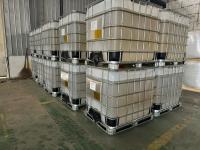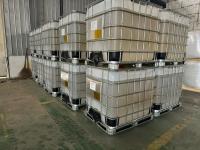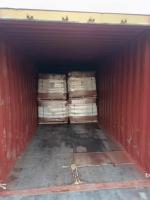Our Products
Product Center / Polyamine manufacturers|polydadmac supplier|polydadmac manufacturer in China

Polyamine
Polyamines are a class of organic compounds that play important roles in various biological and industrial processes. Here are some of their main applications:
-
Biological Functions and Medical Applications
- Cell Proliferation and Growth: Polyamines are essential for cell growth and division. They interact with nucleic acids, proteins, and phospholipids in the cell, influencing DNA replication, transcription, and translation. In the medical field, understanding the role of polyamines in cancer cell growth has led to the development of potential anti - cancer therapies. By inhibiting the enzymes involved in polyamine biosynthesis, it is possible to slow down the growth of cancer cells.
- Neurotransmission: In the nervous system, polyamines are involved in modulating neurotransmitter release and receptor function. They can affect the activity of ion channels and neurotransmitter transporters, playing a role in neural signaling and synaptic plasticity. This has implications for treating neurological disorders such as Alzheimer's and Parkinson's diseases, where abnormal neurotransmission is involved.
- Wound Healing: Polyamines promote the migration and proliferation of fibroblasts, which are crucial for wound healing. They also enhance the synthesis of collagen and other extracellular matrix components, helping to repair damaged tissues.
-
Industrial Applications
- Corrosion Inhibition: Polyamines can be used as corrosion inhibitors in various industrial settings. They form a protective film on metal surfaces, preventing the contact of corrosive agents with the metal. This is particularly important in the oil and gas industry, where pipelines and equipment are often exposed to corrosive environments.
- Textile Industry: In the textile industry, polyamines are used for fabric finishing. They can improve the dye - uptake properties of fabrics, resulting in more vibrant and durable colors. Additionally, they can enhance the softness and hand - feel of the fabric.
- Water Treatment: Polyamines are used in water treatment processes. They can act as flocculants, helping to remove suspended particles and impurities from water. By neutralizing the charges on the particles, polyamines cause them to aggregate and settle, making it easier to separate them from the water.
Polydadmac
Polydadmac, short for poly(diallyldimethylammonium chloride), is a cationic polymer with a wide range of applications.
-
Water Treatment:
- Coagulation and Flocculation: Polydadmac is an effective coagulant and flocculant in water and wastewater treatment. It can rapidly neutralize the negative charges on colloidal particles, causing them to aggregate and form larger flocs. This improves the efficiency of sedimentation and filtration processes, removing turbidity, suspended solids, and some organic pollutants from the water. It is often used in combination with other water treatment chemicals to achieve better results.
- Sludge Conditioning: In wastewater treatment plants, polydadmac is used to condition sludge. It helps to dewater the sludge by binding to the water - holding sites in the sludge particles, making it easier to separate the water from the solid matter. This reduces the volume of sludge and makes it more suitable for disposal or further treatment.
-
Paper Industry:
- Retention and Drainage Aid: In the paper - making process, polydadmac is used to improve the retention of fines and fillers in the paper web. It helps to attach these small particles to the cellulose fibers, preventing them from being washed away during the papermaking process. At the same time, it also improves the drainage of water from the wet paper web, increasing the production speed and improving the quality of the paper.
- Surface Sizing Agent: Polydadmac can be used as a surface sizing agent for paper. It forms a thin, protective film on the surface of the paper, improving its surface strength, water resistance, and printability. This is particularly important for high - quality printing papers and packaging papers.
-
Textile Industry:
- Antistatic Agent: Polydadmac is used as an antistatic agent in the textile industry. It can be applied to fabrics to reduce static electricity build - up, which can cause problems such as fabric sticking, dust attraction, and electrical discharge. By improving the conductivity of the fabric, polydadmac helps to dissipate the static charge.
- Dyeing Assistant: Similar to polyamines, polydadmac can also act as a dyeing assistant. It can improve the affinity of dyes for the fabric, resulting in more even and intense dyeing. It can also help to prevent dye migration and improve the fastness of the dye to washing and rubbing.
-
Other Applications:
- Cosmetics and Personal Care Products: Polydadmac is used in some cosmetics and personal care products, such as shampoos and conditioners. In shampoos, it can act as a conditioner, improving the combability and softness of the hair. In skin care products, it can help to improve the texture and stability of the formulations.
- Biomedical Applications: Although not as widely used as in some other fields, polydadmac has shown potential in biomedical applications. For example, it has been studied for its use in drug delivery systems and tissue engineering. Its cationic nature allows it to interact with negatively charged biomolecules and cells, making it a useful material for certain biomedical applications.
In conclusion, both polyamines and polydadmac have important applications in various fields. Their unique chemical properties make them valuable materials for improving processes and products in industries ranging from water treatment and paper making to medicine and cosmetics. As research continues, it is likely that new applications and uses for these compounds will be discovered, further expanding their impact in different areas.



728_small.jpg)

